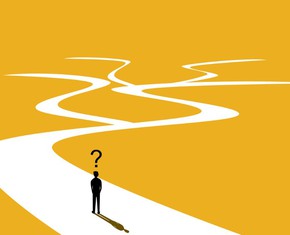The views expressed in our content reflect individual perspectives and do not represent the authoritative views of the Baha'i Faith.
We can well perceive how the whole human race is encompassed with great, with incalculable afflictions. We see it languishing on its bed of sickness, sore-tried and disillusioned. – Baha’u’llah, Gleanings from the Writings of Baha’u’llah, p. 213.
An angry Providence, the cynic might well observe has abandoned a hapless planet to its fate, and fixed irrevocably its doom. Sore-tried and disillusioned, humanity has no doubt lost its orientation, and would seem to have lost as well its faith and hope. It is hovering, unshepherded and visionless, on the brink of disaster. A sense of fatality seems to pervade it. An ever-deepening gloom is settling on its fortunes as she recedes further and further from the outer fringes of the darkest zone of its agitated life and penetrates its very heart. – Shoghi Effendi, The World Order of Baha’u’llah, p. 190.
Do you feel “sore-tried and disillusioned?” Have you lost your faith and hope? Does cynicism about the future pervade your thinking? If so, you’re not alone. Those feelings, common in every country on Earth, have become so widespread that economists, political scientists and futurists have begun to study them seriously and use them to predict the future of entire nations and regions.
Traditionally, we’ve used “hard” economic indicators like Gross Domestic Product (GDP), unemployment data and average household income to measure the overall health of our countries. But those purely materialistic measures fail to gauge a vastly more important one: how people feel. Do people feel secure and safe, or do they feel hungry and desperate? Do they feel optimistic about the future, or deeply pessimistic? Do they have hope?
A decade ago the Gallup Organization decided to begin measuring what their pollsters and scientists call “Global States of Mind”—the collective sense of well-being we all feel or don’t feel. Their polling, in 160 countries around the world, gauges the interconnected elements we usually think of as our well-being: our quality of life, our general health, our work, our social networks, our engagement in life and most importantly, our hope for the future. World leaders use these metrics as a way to determine how their citizens rate their own sense of optimism, which can and often does determine the entire future of a nation or a global region.
Gallup’s Global States of Mind survey asks many questions, but focuses on two main ones. The survey asks them this way:
Please imagine a ladder, with steps numbered from zero at the bottom to 10 at the top. The top of the ladder represents the best possible life for you and the bottom of the ladder represents the worst possible life for you. On which step of the ladder would you say you personally feel you stand at this time?
Just your best guess, on which step do you think you will stand in the future, say about five years from now?
You may have seen the top-line results of these global surveys. Typically, when the media reports on them, we hear about the countries with the highest life evaluations or “happiness indexes:” Denmark, Iceland, Sweden, Canada, etc. We rarely hear about the countries in the middle or on the low end of the scale: the United States, for example, has relatively middling average scores; while countries with active wars, conflicts and widespread food insecurities like Syria, Senegal and Afghanistan rank lowest.
Want to take the survey, and rate your own life? If you do, here’s how the Gallup pollsters classify the survey’s respondents:
Those who rate their present life a 7 or higher and their life in five years an 8 or higher are classified as thriving, while those who rate both dimensions a 4 or lower are considered suffering. Respondents whose ratings fall in between are considered struggling.
After you’ve decided to assign a state-of-mind number to your own rung on the “best possible life” ladder, you should know one un-reported and very important factor in these measurements. Even the two highest-ranked nations in the world (Denmark and Iceland, at 70%) barely edge out of the struggling category and into the thriving one. The people from every other country in the world collectively describe themselves and their potential futures as either struggling or suffering. This reflects a deep pessimism about our expectations. Despite our world’s prosperity, development and technological advances, hope seems to be in short supply.
Would you like to feel hopeful again? The Baha’i teachings offer the world a new sense of hope.
Baha’is believe that hope comes from knowledge, especially the knowledge that true faith gives. Because faith means hope for the future; and because the word faith means “to trust,” the Baha’i teachings ask us to trust in God’s love and mercy for humanity, and to anticipate a bright future:
The darkness of this gloomy night shall pass away. Again the Sun of Reality will dawn from the horizon of the hearts. Have patience–wait, but do not sit idle; work while you are waiting; smile while you are wearied with monotony; be firm while everything around you is being shaken; be joyous while the ugly face of despair grins at you; speak aloud while the malevolent forces of the nether world try to crush your mind; be valiant and courageous while men all around you are cringing with fear and cowardice. Do not yield to the overwhelming power of tyranny and despotism. Serve the cause of democracy and freedom. Continue your journey to the end. The bright day is coming. The nucleus of the new race is forming. The harbinger of the new ideals of international justice is appearing. The trees of hope will become verdant; the copper of scorn and derision will be transmuted into the gold of honour and praise; the arid desert of ignorance will be transformed into the luxuriant garden of knowledge, the threatening clouds shall be dispelled and the stars of faith and charity will again twinkle in the clear heaven of human consciousness. – Abdu’l-Baha, Star of the West, Volume 5, p. 141.
















Comments
Sign in or create an account
Continue with Googleor